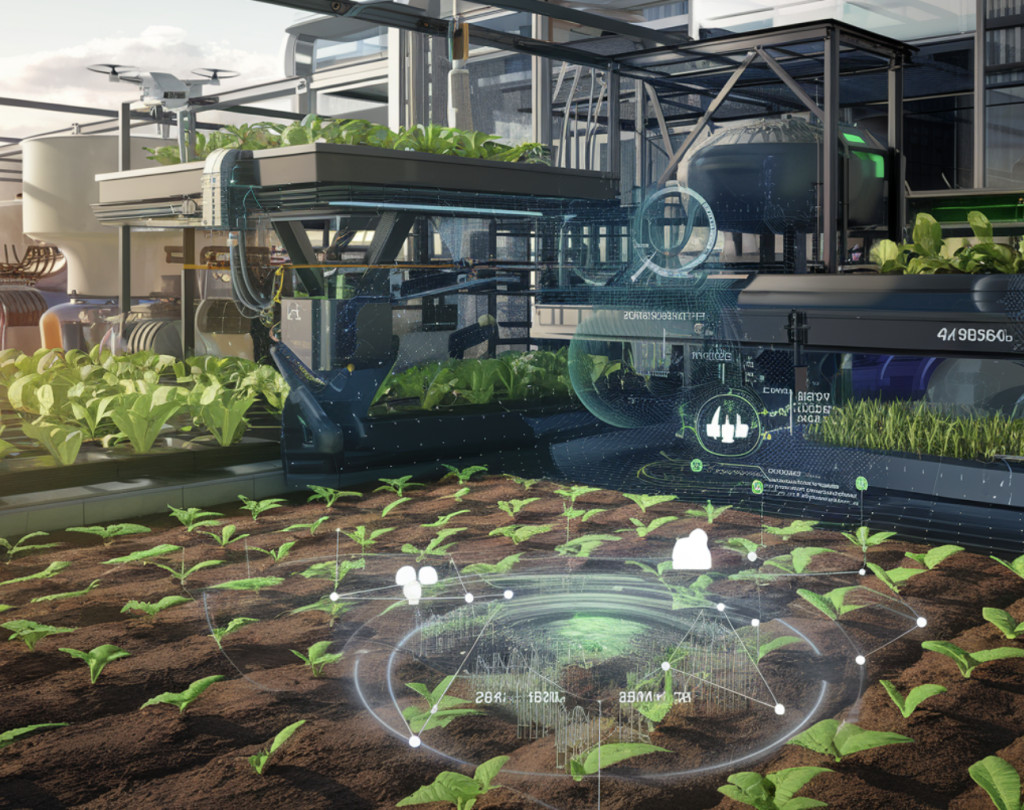The Need for a Comprehensive Soil Quality Index:
The absence of a universal Soil Quality Index (SQI) poses a significant challenge to improving crop productivity and environmental sustainability. Traditional SQIs, which often rely solely on physicochemical properties, are slow to detect changes in soil health and may not provide timely insights into soil degradation. In contrast, microorganisms in the soil respond quickly to changes in land use and management practices. These microbes are crucial in driving soil functions influencing fertility, health, and quality. Understanding how microbial communities transform in response to management practices can enhance our ability to predict soil quality trajectories. However, existing models cannot account for the complex and site-specific factors affecting soil quality.
Leveraging AI for Enhanced Soil Quality Assessment:
Over the past decade, substantial amounts of soil (meta)genomic data have been generated, providing an opportunity to improve soil quality assessment. Advances in AI, particularly ML, have revolutionized predictive modeling across various fields, including agriculture. AI can help plant breeders identify beneficial traits and inform crop management decisions by predicting weather changes. Integrating AI with soil microbiome data, alongside conventional physicochemical parameters and productivity metrics, could lead to developing a dynamic and flexible Artificially Intelligent Soil Quality Index (AISQI). This index could be tailored to regional variations while enabling comparative studies, ultimately enhancing agricultural management and ecosystem sustainability.
Integrating AI and Soil Management for Sustainability:
Integrating AI into soil management may seem unconventional, yet it holds significant potential for enhancing sustainable agriculture. Traditionally, soil management has concentrated on food production, natural cycles, and sustainability. However, AI introduces advanced computational methods that can significantly improve these processes. In particular, ML, a branch of AI, is crucial for analyzing extensive datasets, identifying patterns, and making predictions. By harnessing ML, optimizing resource utilization, boosting productivity, and supporting environmental protection in agriculture is possible. Developing an AISQI could be a crucial tool for forecasting soil responses to various management practices, enabling farmers to make more informed decisions that effectively balance productivity with sustainability.
The Role of Soil Microorganisms in Soil Quality:
Soil quality is traditionally assessed using physical and chemical indicators, but these measures often lack sensitivity to early signs of degradation. Soil microorganisms constitute a significant portion of soil biodiversity and are essential for maintaining soil structure, nutrient cycling, and overall ecosystem health. Their rapid response to environmental changes makes them valuable indicators of soil quality. Advances in high-throughput sequencing and AI have made it possible to analyze soil microbial communities in unprecedented detail. Integrating this biological data into soil quality assessments can improve the accuracy and timeliness of predictions, helping to identify degradation risks and inform management strategies.
Developing a Multi-Level Artificially Intelligent Soil Quality Index:
The development of an AISQI requires a multi-level approach. At the most basic level, predictions can be made using global soil data and historical management practices. The most advanced level of the AISQI would involve adaptive predictions based on time-resolved data, allowing the model to evolve as new data is collected. This approach would enable land managers to conduct virtual experiments, test different management scenarios, and select the most effective strategies for their specific soil conditions. The AISQI could thus become a powerful tool for optimizing soil health and agricultural productivity.
Conclusion:
Implementing such an advanced system poses challenges regarding data acquisition and processing power. The complexity of soil systems and the vast amount of data required for accurate predictions may exceed the capabilities of current technology. However, the potential benefits of an AISQI are significant, offering a means to improve soil management practices, enhance agricultural sustainability, and mitigate the environmental impacts of farming. Collaborative efforts among soil scientists, bioinformaticians, and AI experts will be essential to realizing this vision and developing a robust and dynamic soil quality index for the future.
Check out the Paper. All credit for this research goes to the researchers of this project. Also, don’t forget to follow us on Twitter and join our Telegram Channel and LinkedIn Group. If you like our work, you will love our newsletter..
Don’t Forget to join our 50k+ ML SubReddit
Here is a highly recommended webinar from our sponsor: ‘Building Performant AI Applications with NVIDIA NIMs and Haystack’
The post Advancing Agricultural Sustainability: The Role of AI in Developing a Comprehensive Soil Quality Index appeared first on MarkTechPost.
Source: Read MoreÂ


